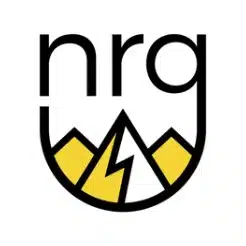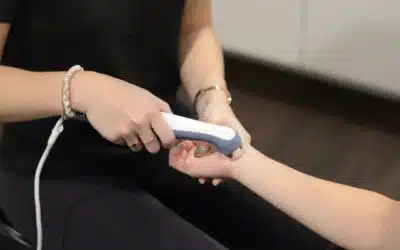A concussion is an injury that can happen in sports, as well as in everyday life. It is caused by a blow to the head, direct force, or sudden changes in force such as a car accident, awkward tackle, a fall, etc.
The brain is the most complex organ in the human body. It contains 100 billion neurons that communicate with each other through the axons and dendrites of the synapses. It’s a wonder the brain can perform the amazing feats it does. But when the brain gets injured, whether from a concussion or a traumatic injury, the injury can damage the brain. Concussions can cause long-term problems such as depression, headaches, memory loss, attention deficit and chronic fatigue. They are also the leading cause of death and disability in sports and recreation activities.
Why do some people who get a concussion or suffer from a head injury walk around fine while others have symptoms for weeks, months, or even years? While we don’t yet fully understand what happens to the brain after a concussion, there are some things we do know. The most important thing to know about concussion is that it doesn’t just affect the brain itself – it affects the whole body. It’s important to remember that when you suffer a concussion, you aren’t just dealing with your brain – you’re also dealing with your entire body.
Identify the Symptoms
A concussion is a serious injury that can cause damage to the brain and nervous system. The symptoms of concussion are not all obvious. They may include headaches, dizziness, confusion, memory loss, fatigue, nausea, vomiting, headache, sleep disturbance, irritability, emotional changes, balance problems, and vision or hearing problems. Concussions can cause short-term and long-term problems. Short-term problems may include feeling confused or disoriented, having trouble remembering things, feeling anxious, or having difficulty concentrating. Long-term problems may include poor balance, mood swings, fatigue, insomnia, lack of concentration, and cognitive impairment.
If you have had a concussion or you suspect that you might have one, it is crucial to see a doctor. You should also be aware that if you have a concussion, you may experience a return of symptoms for a few weeks or even months after the injury.
The symptoms will vary from person to person and from injury to injury. There is no one set of symptoms, and you may not feel any symptoms at all.
Rule Out the Common Causes
Concussions are tricky injuries to diagnose. That’s why it is very important for the person who has one to see his or her doctor or physiotherapist right away. Usually, when someone has a concussion, he or she may experience some sort of memory loss. That’s why it is so important for the person to be checked out by a physiotherapist. The physiotherapist will be able to tell if the person has any other brain injuries that are more serious than a concussion.
Sometimes, a person who has had a concussion will feel fine and not want to go to the health care professional. That’s a mistake.
The human brain is a complex organ, and it’s easy to overlook the importance of what’s going on when we’re experiencing concussion symptoms. As a result, people often assume that symptoms are caused by a lack of physical activity, sleep, nutrition, or stress. In fact, these symptoms can be caused by a wide variety of other factors.
How to determine the cause of the problem? Is it because of the weather? Is it because of an accident that happened in your life? Or maybe it’s a lack of sleep? Perhaps you have been overdoing it at work? These are all possibilities.
The first thing you should do is see your physiotherapist or chiropractor if you feel that you are having concussion symptoms. Your health care professional can help you figure out the cause of your symptoms and then prescribe the right treatment.
Treat the Concussion
The good news is that the concussion’s physiotherapy treatment will help you recover from the concussion.
When you get a concussion, you should take some time off from your daily activities to rest and relax. It is important to be careful when you are resting. It is important to keep yourself hydrated and to avoid having any alcohol or drugs. You also need to make sure that you have enough sleep. It is imperative to do this because it will help to relieve stress and anxiety. It will also help to improve your mood and your memory. If you feel depressed, you need to talk to your friends or family about it. They can help you to find ways to cope with your depression.
There are a number of physiotherapy treatments for concussions. One of the most common treatments is the RICE method, which stands for Rest, Ice, Compression, and Elevation. This is the treatment that is recommended for mild to moderate concussions. The RICE treatment is a simple and straightforward treatment that the patient can easily follow.

Can a Chiropractor Help With Concussion?
Chiropractors use a gentle approach to get to the root of your pain, and they can help you get back to feeling great. Part of their role is to manage cases of suspected concussions and refer them for additional medical attention as needed. Chiropractors can also help to co-manage the recovery.
There is no definitive answer to which chiropractor or therapy is best suited for concussion when it comes to chiropractic treatment for concussion.
Because so many different factors can cause the symptoms of a concussion, it is challenging to pinpoint the exact cause of the problem. It is possible to treat the concussion, but it is even more likely that you will need to manage the concussion with a number of different treatments.
Several chiropractic treatments are used to help with concussion recovery. Chiropractic treatment for concussions can help to relieve your symptoms. Chiropractic care for concussion is very similar to the chiropractic care that is used for any other condition. Your chiropractor will begin by checking to ensure that you do not have any broken bones or other injuries. They will make sure that there is no damage to your spine or other parts of your body.
The chiropractor will work to restore the function of your brain and spinal cord by manually treating your spine and other parts of your body. Chiropractic treatments are safe, non-invasive, and effective in treating many different types of conditions.
After a concussion, it is vital to keep the person as calm and as still as possible. The idea is to let the brain heal itself. If you or your loved one has had a concussion, the best thing to do is let the chiropractor or physiotherapist decide when to start treatment. Don’t try to do anything by yourself. Let your physiotherapist or chiropractor handle all the details. In any case, the RICE method is a good way to help with a concussion, and it is especially helpful if you have had one in the past.
Support the Recovery
After a person has a concussion, it is imperative that they follow the health care professional instructions to the “T.” Not doing so can lead to more severe injuries such as a seizure or stroke. Therefore, the first step after a person has a concussion is to make sure that they can rest as soon as they have symptoms.
One of the biggest mistakes people make after they have a concussion is that they try to go back to their regular routine too soon. It will help if you gradually start doing more challenging activities but at the advice of your chiropractor or physiotherapist.
Don’t challenge yourself if your physiotherapist or chiropractor says you are not ready for it. It’s important to take the time to rest and heal properly when you have symptoms.
Review Your Patient Progress
It is important to remember that people who have had a concussion need time to heal, and they should not be overexerted, overworked, or put under too much stress. This applies to both – men and women.
When a patient is discharged from the hospital after suffering a concussion, it is important to follow up with them to make sure they are healing properly and watch for any early signs of other problems. Healthcare staff should re-evaluate patients with a concussion within 48-hours of when they first begin to recover. This is to ensure there are no lingering effects of the concussion. It is also important for patients to avoid any activity that could potentially cause them to lose consciousness or have a seizure.
The most important thing to remember is that a concussion doesn’t mean you will die. But you might be experiencing some symptoms that aren’t normal. The best thing you can do is to rest, drink plenty of water, and watch what you eat. It may take a while for the symptoms to disappear, but you will get better.






0 Comments